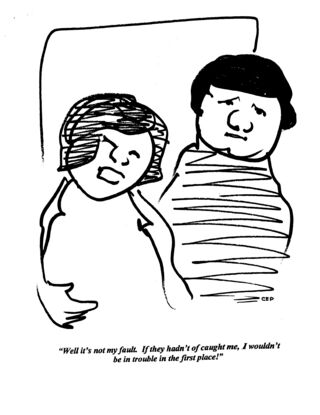Mating
Appreciating the Power of the Adolescent Crush
Intense romantic attraction to someone barely known approximates early love.
Posted March 22, 2021 Reviewed by Lybi Ma

- Adolescence is an impressionable age when media convincingly advertises and glamorizes youthful images and experiences.
- The teen has his own fantastical imaginings about what his crush must be like, but this may not even be close to reality.
- Nonetheless, having a crush can be an important adolescent rite of passage.
To learn about love, young people have to start somewhere; and that early introduction often comes in the form of the adolescent crush—a mix of fantasy, attraction, and romance that can be intensely affecting at the time.
A 14-year-old boy wrote and described his experience thus: “About a year ago now I developed a crush on a girl in my class who I had very little interaction with whatsoever and throughout this, I was hoping to get to know her…I am still enamored with her and it has had a massive impact upon my mood, sleep schedule, and at times dejection.” As he faithfully described it, a crush is often not a casual interest. From start to finish, it can be a very impactful experience.
What is the crush experience?
A crush can be a complicated emotional mix to manage. For example:
- A crush can feel unexpected: “I was caught by surprise.”
- A crush can seem like a dream come true: “I’ve found the perfect someone.”
- A crush can create an emotional high: “I feel carried away.”
- A crush can feel overwhelming: “I can’t think of anything else.”
- A crush can feel awkward: “I’m shy and I stumble.”
- A crush can take courage: “It’s scary to care!”
- A crush can be risky: “Suppose they don’t feel the same?”
- A crush can be costly: “I don’t have time for friends.”
- A crush can be embarrassing: “I keep getting teased about it.”
- A crush can be disappointing: “Suppose it doesn’t last?”
- A crush can be long remembered: “I won’t forget my first love!”
Why is the crush so important?
From what I’ve seen, middle school and early high school are when most adolescent infatuations occur. This makes some developmental sense.
- Puberty has awakened physical attraction.
- Acting older has ignited interest in romantic imagining.
- Curiosity seeks to experience greater intimacy in relationships.
And most important, adolescence is a very impressionable age when commercial media increasingly and convincingly advertises and glamorizes youthful images and experiences to aspire to, romantic ideals among them. “I wish I looked this way!” “I need to experience that!”
While the child socially wanted to have play friends, the adolescent is now growing more seriously inclined, interested in finding a boyfriend or girlfriend to socially pair up and share a special caring connection with.
But how would one recognize such a person? The answer is by finding someone who appears to possess the qualities you find ideally attractive.
What love at first sight really means
A crush is a “love at first sight” kind of experience that tells less about the person beheld than about the beholder. As described in an earlier post (“Adolescence and the Teenage Crush,” 10/10/12), first the holder of the crush projects idealized traits on another person who they often barely know. Then, the projector becomes infatuated with the impression of perfection they have created. And now idealization intensifies emotion with a potent mix of excitement at attraction and anxiety over outcome. “I can’t get them out of my mind! What now?”
The fantasy of the crush is not the reality
Intensely emotional experiences, crushes are made to arouse infatuation. The reason why, as mentioned earlier, is that they are based on the lover projecting personal ideals on someone they actually don’t know that well. Mostly they have been smitten with their own fantasy imaginings about what that person must be like.
Because the image they have idealized often doesn’t have a lot to do with the reality of the person they feel so drawn to, crushes are deeply felt but superficial attractions. They are based on a fantasy vision of the other person. This is why crushes are usually not built to last.
Disenchantment sets in when more reality about the love object is discovered (“She’s not as perfect as I imagined”) or when ideals of the enamored person change (“What I loved about him doesn’t impress me anymore.”)
As actual experience modifies ideal perception, the other person becomes less wonderful than first supposed. For a truly caring relationship to develop from a crush attraction, the romantic fantasy must be let go so realistic interest and liking and acceptance can grow. Sometimes this happens, but I believe usually it does not. Although a crush doesn't end with a broken heart, one is left with a disappointed hope, which is a loss enough.
Is there value in experiencing a crush?
Many young people have to get a crush on an ideal fantasy before they can experience the reality of actual love. In this way, having a crush can be an important adolescent rite of passage.
A few telling comments about crushes come to mind.
“I didn’t know that I could fall for someone before.”
“A crush can make you feel really good and really bad.”
“You don’t choose to have a crush; it just happens to find you.”
“Just because a crush doesn’t last doesn’t mean it’s not worth having.”




